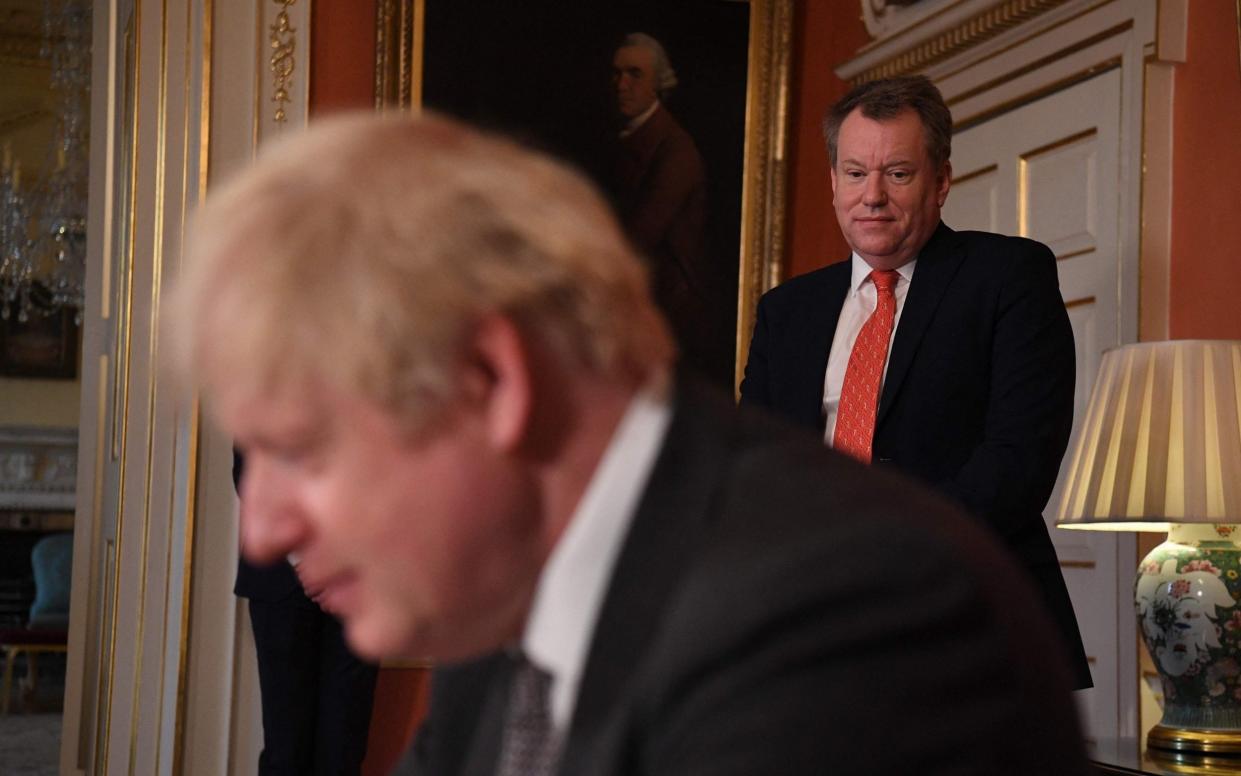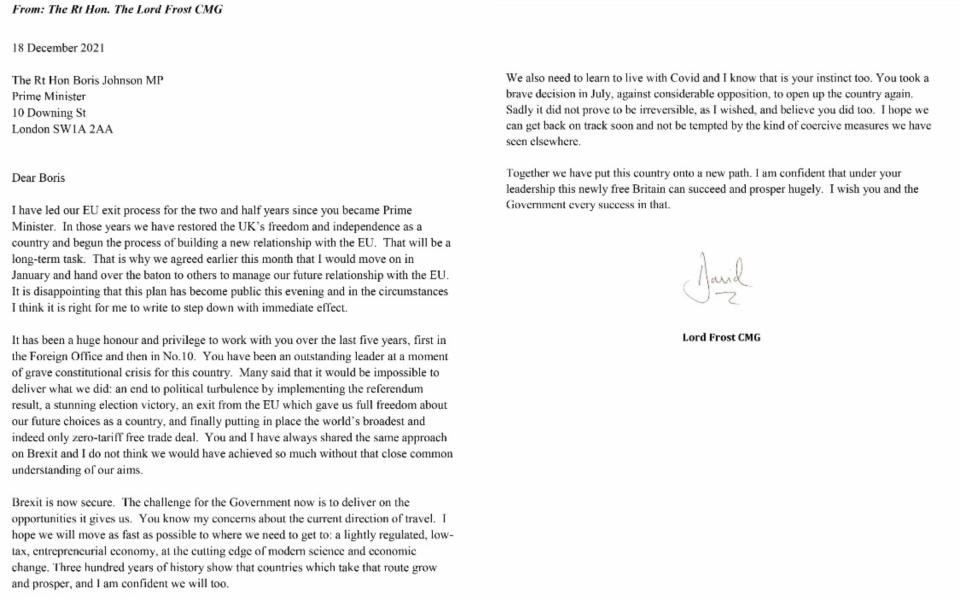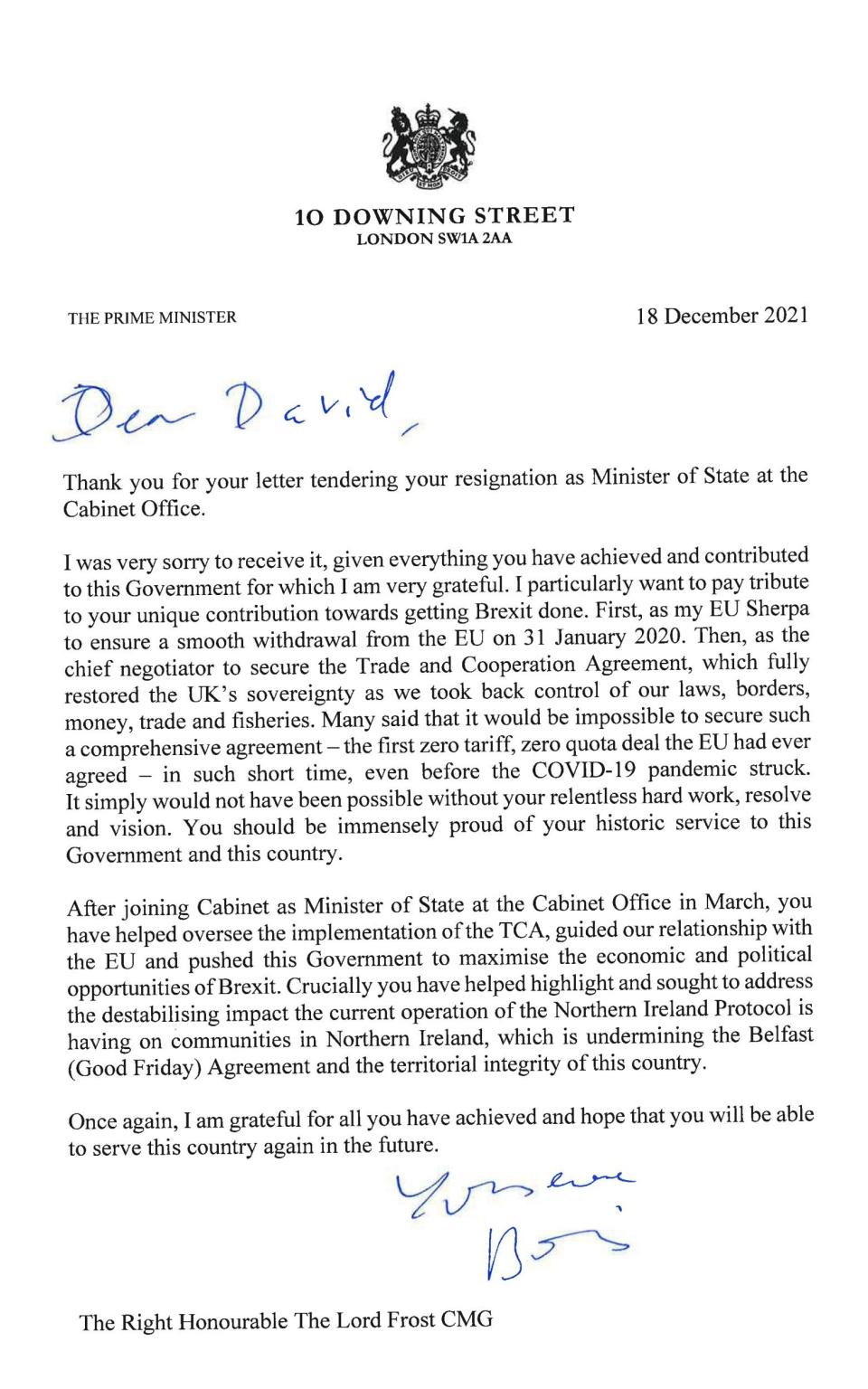A new week and a new crisis for Boris Johnson as departing Lord Frost serves up a shopping list of grievances

- Oops!Something went wrong.Please try again later.
- Oops!Something went wrong.Please try again later.
Lord Frost urged Boris Johnson to “deliver on the opportunities” of Brexit as he quit the Government on Saturday night over concerns about its economic policy and Covid-19 restrictions.
In his resignation letter to Mr Johnson, the Cabinet Office minister insisted that Brexit was “now secure” but added: “The challenge for the Government now is to deliver on the opportunities it gives us.”
The minister, who privately opposed the Government’s planned National Insurance increase, urged the Prime Minister to move “as fast as possible” to “a lightly regulated, low-tax, entrepreneurial economy, at the cutting edge of modern science and economic change”.
Alluding to the Plan B Covid restrictions that ultimately prompted his resignation, the peer also warned that “we... need to learn to live with Covid”, as he reminded Mr Johnson of his pledge that the lifting of restrictions in the summer would be “irreversible”.
He wrote: “You took a brave decision in July, against considerable opposition, to open up the country again. Sadly it did not prove to be irreversible, as I wished, and believe you did too.
“I hope we can get back on track soon and not be tempted by the kind of coercive measures we have seen elsewhere.”

Lord Frost’s recent speeches were littered with warnings to Mr Johnson over his approach to Covid-19 restrictions and the economy that appear to have gone unheeded.
In a speech in June, Mr Johnson’s former Foreign Office adviser said: “I personally don’t want to accept that the levels of state involvement in our lives and in the economy we have seen in the last year are in any way normal. I want to get back to the old normal as soon as we can.”
Less than a month ago Lord Frost used a speech at the Centre for Policy Studies’ Margaret Thatcher conference to issue a barbed warning about Mr Johnson’s approach to the economy, saying: “The formula for success as a country is well known. Low taxes – I agree with the Chancellor, as he said in his Budget speech, our goal must be to reduce taxes; light-touch and proportionate regulation, whatever our policy objectives. Free trade – of course – simultaneously increasing consumer choice while reducing consumer costs. Ensuring competition stops complacency – keeping our economy fit and responsive to innovation and progress abroad. And personal freedom and responsibility.”
Again, the peer returned to the theme of “state direction and control during the pandemic”, describing the measures to date as “unavoidable”.
But he added: “That cannot and must not last forever, and I am glad that it is not. I am very happy that free Britain, or at least merry England, is probably now the free-est country in the world as regards Covid restrictions.” A few weeks later when Mr Johnson adopted mask rules and a form of vaccine passports, Lord Frost reached the end of the road.

His exit leaves the Prime Minister’s Brexit policy in tatters, coming in the middle of intense talks with the EU about overhauling the NI protocol. Last night Steve Baker, a former Brexit minister, said: “This could scarcely be more serious. Lord Frost was, in many ways, the architect of our exit and the guarantor of success.”
Mr Johnson had persuaded his erstwhile ally to stay on for a couple of months to see the talks through, but a leak of his resignation last night made even that possibility untenable and brought Lord Frost’s eight-month Cabinet career to an abrupt end.

